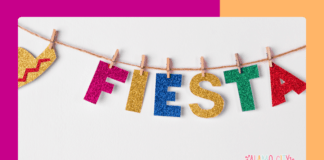One in five children in the United States has a learning difference.
Roughly 6.1 million children have ADHD.
Yet as a society we still expect every child in the classroom to fit a particular academic and social mold. And when they’re “different,” they can be seen as behind, slow, or ill-behaved. They’re often subjected to bullying and anxiety. Over time their self-esteem takes a major blow and with that goes their academics and motivation for success.
It makes sense, right? Who would enjoy school if every single day they were picked on or made to feel less than through their academic performance?
October is Learning Differences Awareness Month, and we’re excited to share how you can keep your child’s confidence up, changing the way they think about themselves and giving them the confidence to succeed in school, social situations, and life.
ACM Alum, Christie Cuthbert, author of the new book, “The Mischief Makers Learn Differences are Awesome,” and ACM Contributor and CEO and Founder of The LD Expert, Stephanie Tsapakis, are here to share their first-hand experience and expertise in leveling the playground playing field for all kids and creating equality.
How did children with learning differences become a part of your life?
Cuthbert: My son struggled with reading in kindergarten and then was diagnosed with Dyslexia and ADHD in first grade. It was a grueling year. He sobbed every single morning on the way to school, and it broke my heart knowing I was sending him into a situation that made him think less of himself every single day. He also had a vocal tic. Between being way behind academically to kids making fun of his little sounds, my heart broke daily, and I researched tirelessly to try and find him the best help I could. As moms, when our children are sad or stressed, we internalize it. But sadly, once they begin school and exit the beautiful, safe bubble of home, there’s only so much you can protect them from.
Tsapakis: For Christmas when I was seven years old, the only thing I asked for from Santa was a pointer, so that I could more realistically play school. Clearly, I was destined to be a teacher from a young age, but I had never really planned on working with students that had learning differences. My brother has severe ADHD, and I grew up witnessing his struggles in school and with controlling his impulsivity. It clearly had a bigger impact on me than I realized, because when I started my first teaching job in a private school for students with learning differences, I knew it was the population of students to which I wanted to dedicate my career. Not only do I enjoy empowering these students to understand that their differences do not make them dumb, but instead something amazing, I also enjoy empowering and educating their parents to help their children reach their full potential.
What do you think is the most misunderstood thing about children with learning differences?
Tsapakis: This is such a loaded question. I think there are many things that can be misunderstood about children with learning differences, but the biggest thing is that their difference(s) should not be seen as disabilities. I am very passionate about the term “learning differences” versus “learning disabilities” because a disability implies you cannot do something. Therefore, if a child were truly learning disabled, that would mean they are incapable of learning. Which, is simply ridiculous. These children can not only learn, but they are capable of such amazing levels of creativity and perseverance, that their learning differences actually help them prepare to be more successful in life than some neuro-typical learners.
Cuthbert: Just like Autism, every learning difference or neuro-difference has a spectrum. When people hear the word ADHD, they assume your child is bouncing off the walls hyperactive. When they hear Tourette Syndrome, they assume they blurt out swear words. But in reality, those are extreme cases that then become stereotypes. There are highly successful people all over the world who have multiple diagnoses and you’d never even know unless you sat down and had a conversation with them. I believe the failure statistics for children with learning differences isn’t based in their actual capabilities but is a direct result of society and the system that is educating them. When I finally got my son into a private school that’s designed for learning differences, everything about him changed. He went from sobbing every day to loving school, feeling confident, and making a ton of friends. Unfortunately, not everyone can afford private education, so we as a society and public school system need to do a better job of educating our students about learning differences and recognize that we all don’t fit into the same box. Period.
What can parents do to help their child with social and academic confidence if they have a learning difference?
Tsapakis (academic): As stated in my previous response, I think it is incredibly important to use the correct terminology. Explain to your child that they do not have a disability, they simply learn in a different way from their peers. Just like we cannot assign a grade to a fish or an elephant for their abilities to climb trees, it is not fair to standardize all of our educational assessments and measures of success either. To start this process, it is important to discuss your child’s diagnosis with them, and to explain to them what things might be more difficult for them and what things might come more easily to them. Put this in the context of things that others are good, or not-so-good, at. If we can normalize the idea of valuing differences, this will help your child feel more comfortable with the idea of struggling with some things and excelling at others.
Another important part of helping your child with academic success is by being their advocate behind the scenes. This is when Mama or Papa Bear might need to come out a bit. Be present at every IEP/504 meeting. Make sure you understand what is being discussed and decided, and if you don’t, hire an advocate! The accommodations and/or modifications that are provided for your student in school are *not* a bad thing, and neither is the “label” the school puts on them to make these services possible. It is incredibly important to have a good IEP/504 plan in place for children to be able to succeed academically.
Cuthbert (social): This past summer at camp my son had a loud vocal tic. We called it the air horn. I was a nervous wreck for him going into a group of brand-new kids for the summer because the first thing they often do is mimic him or make fun. This year, the night before, I told him, “You know what? Just go in there and educate everyone. Speak up for yourself and teach them about tics. Often, we as humans make fun of something because we don’t understand it, but if you share with them what your brain does, they’ll understand, and it will become an afterthought instead of a focus.” He did just that, and the minute the kids learned, they understood and developed empathy. They didn’t even notice his tic the remainder of the summer, and when a new child would join camp and start in, the others would immediately stand up for my son and advocate for him.
For me, the key is giving your child confidence, making them proud of who they are, and helping them understand that differences aren’t setbacks, they’re awesome. While they may make academics hard right now, in the long run of life, they’ll have skills that no one else will because of their ability to overcome challenges. I also tell my boys if a bully says something mean to them, to turn around with a smile and say, “Really? That’s all you’ve got? That’s your best insult? Nice try.” I teach them about not allowing anyone to have power over them socially, because confidence in someone can be felt by others, and we all have a uniqueness that should make us confident. We’re all different and awesome in our own way.
Tell us about your new project, “Differences are Awesome.”
Cuthbert: After watching what happened with the kids this summer at camp and knowing there were very few books out there for kids with learning differences, I decided to write a new Mischief Makers book focusing on building confidence and empathy. The book is available now on Amazon and will be in local San Antonio retailers soon. We wanted to take the message of empowerment a step further and eliminate the stigma that surrounds learning differences and neuro-differences. We’ve encouraged others to share their stories this month by using the hashtag #differencesareawesome.
Tsapakis: I am truly so excited for the new Mischief Makers book, “Differences are Awesome.” I was honored when Christie Cuthbert asked me to consult with her on the book, and I think she has created something so needed! There is an incredible lack of representation in children’s literature of characters that have learning differences. Additionally, there is even less children’s literature that teaches students how to advocate for themselves and proudly explain their differences to their peers. I think this book is so important because it begins to teach children that society does not always value differences in each other, but that it can be such a gift to us all!
How can people learn more?
To find out more about the book and movement, log onto www.mischiefmakerbooks.com.
For loads of resources about learning differences, advocacy services, or specialized virtual tutoring, log onto www.ldexpert.org.
If you want to share your story or support, post to social media using the hashtag #differencesareawesome.










